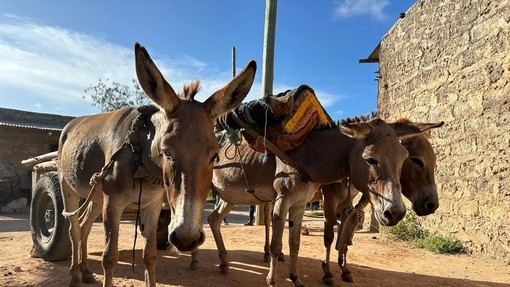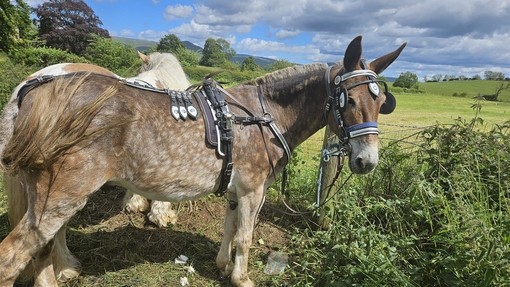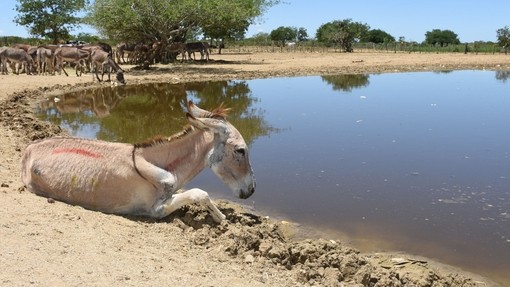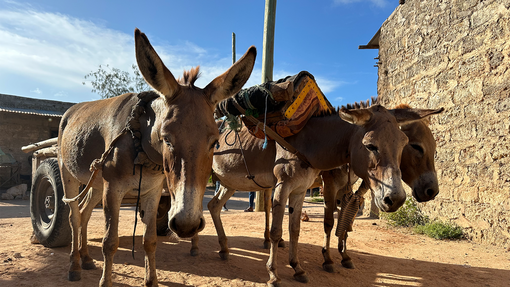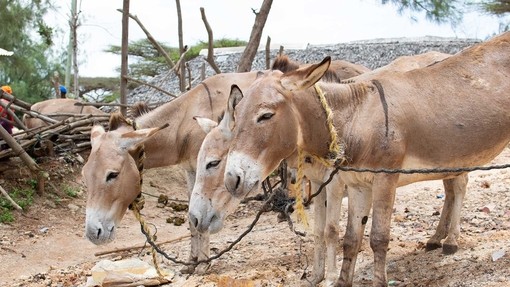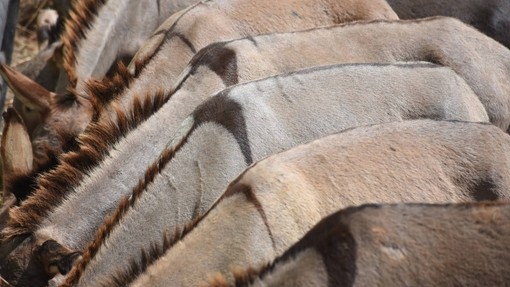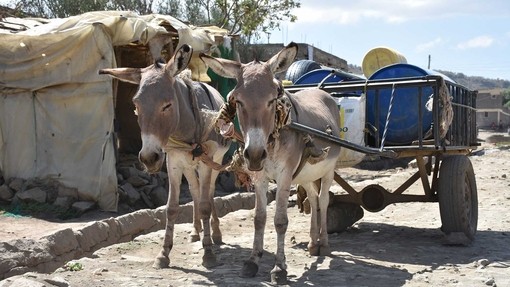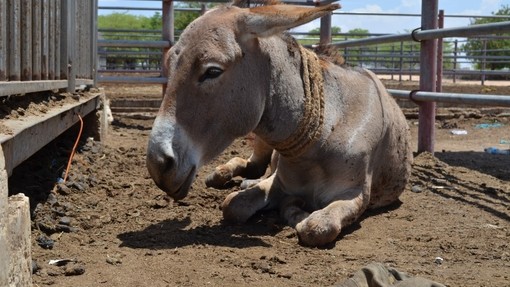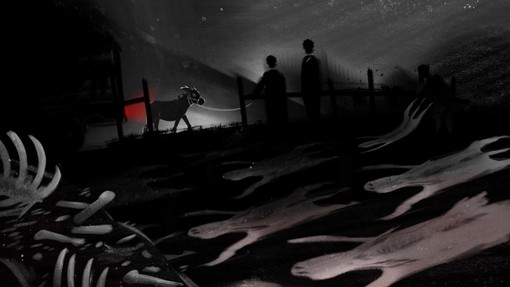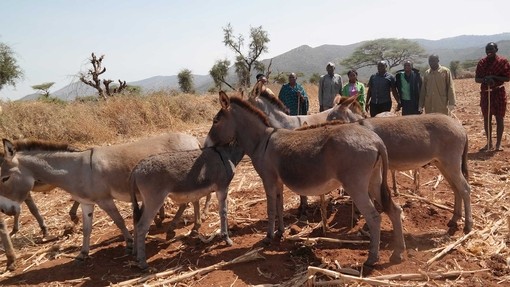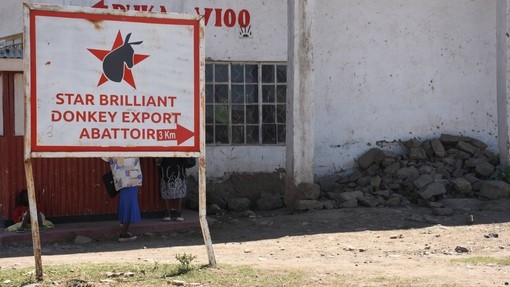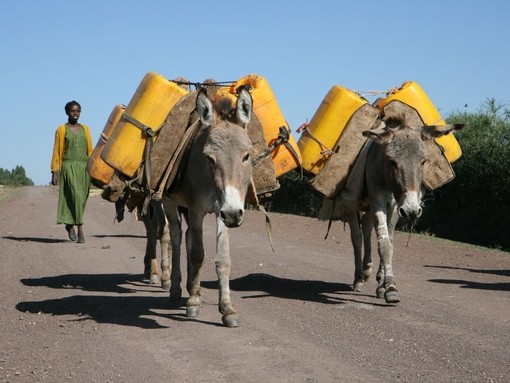
Smuggling donkeys across the borders
Demand for donkey skins, used in the traditional Chinese medicine called ejiao, has been blamed for halving Kenya’s donkey population and traders are now casting their net further.
A report by Oxpeckers Investigative Environmental Journalism, and sponsored by The Donkey Sanctuary, tracked the trade route of donkeys being smuggled across the border from Ethiopia and into slaughterhouses in Kenya. It found that donkeys were being sourced both legally and illegally in Ethiopia before being trucked with no food or water up to 1,100km to reach the border post in Moyale, Ethiopia. They are then walked across the border on foot before being trucked once again to the Goldox slaughterhouse in Baringo or the Star Brilliant slaughterhouse in Naivasha.
In Naivasha, Kenya, Oxpeckers met taxi driver Lawrence Kamau, who said he had made “lots of good money” from the Star Brilliant abattoir since it opened in 2012.
“When the abattoirs started, people willingly sold their old, injured and excess donkeys. With the excess donkeys gone, the demand is up by thousands and yet the people don’t want to sell anymore,” he said.
“People are no longer willing to sell because the poverty that comes with it is now evident among those who have sold. But the scarcity has bred demand, and demand has bred incentives. The Chinese now pay more, and ask no questions to keep donkeys reaching the abattoirs,” he said.
Kamau said most of the donkeys slaughtered in Kenya are now stolen or bought legally in Ethiopia before being smuggled into Kenya. At present, there is no legal export trade in donkeys from Ethiopia to Kenya but Kamau said that every day, trucks arrived at the Moyale border with donkeys headed for the slaughterhouses in Kenya. There are reports that donkeys are being sourced from both Somalia and Tanzania owing to the national shortage.
There is a higher demand for hides now, which coincided with the increased unwillingness to sell among Kenyan donkey owners. That has forced the managers at Star Brilliant in Naivasha and Goldox in Baringo to buy donkeys from Kenyan and Ethiopian cross-border traders.
Many of the donkeys that reach Kenyan abattoirs are bought at Ethiopian livestock markets. Deals are cut between donkey collectors from the local Ethiopian Guji clan and the Kenyan Burji clans, who are the buyers. The two clans occupy large swathes of territory on either side of the Moyale border area.
Up to 3,000 donkeys of mixed sex and age are sold every month on the open livestock markets of Ethiopia, although the middlemen pay better for large and healthy males. The prices range from between 1,600 Birr ($57) and 3000 Birr ($106) per animal. From the livestock markets, the animals are trekked and driven in cattle trucks for distances ranging between 250km and 1,100km to reach the border post.
“Because of the double taxation of 60 Birr (about US$ 2.14) per donkey, some cross-border traders have shifted to Miyo Wereda in Borana to reach the city of Sololo in Kenya,” said Fitsum. The research also found that Gabra clans who live in the Golobo rangeland near Moyale City in Kenya were buying stolen Ethiopian donkeys and slaughtering them in the bush to sell the meat. The government has repeatedly engaged the clan, but failed to stop the practice.
Simon Pope, campaign manager at The Donkey Sanctuary said: “Every donkey stolen from a dependent family or community in Ethiopia sets in motion a story of broken hopes and poverty. It might mean that family cannot afford to put food on the table that night, or that they have to work even harder and longer now that their principal means of earning a living has gone.
“A huge international industry has been built around the escalating demand for donkey skins. It is time that instead of saying that they oppose the illegal theft and slaughter and trafficking of skins that they demonstrate it in their actions as well. They should begin immediately by refusing to buy hides from these two slaughterhouses, as we know they do, until they can demonstrate that their donkeys or hides are sourced only from legal channels.”
Help stop the slaughter
Donate todayShare this page
Tags
- News

